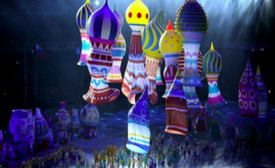russia
It seems like one reason why Russia’s actions in Crimea appear so jarring and brazen is that it’s a form of warfare that was once common but rarely take place anymore. Russia may not formally annex Crimea – it seems more likely that the territory will declare independence under heavy Russian influence – but it has essentially invaded another country to lob off a piece of territory that was, despite longstanding nationalist sentiment, an undisputed part of Ukraine.
Stunned by Russia's swift move into the autonomous province of Crimea and the Russian parliament's endorsement of that brazen action, the United States called on Moscow to withdraw its forces from the region and "refrain from any interference elsewhere in Ukraine." Speaking by phone with Russian President Vladimir Putin for the first time since this crisis escalated, President Obama expressed concern over "Russia's clear violation of Ukrainian sovereignty and territorial integrity," according to a White House statement.
Late last month, as thousands of international journalists prepared to descend on Sochi to cover the Winter Olympics, the Kremlin resorted to using a controversy to silence a critical television station. A direct move to shut down the station would have been too blunt--particularly at a time when all eyes were on Russia--so authorities resorted to exploiting a producer's blunder, blowing it out of proportion, and pushing a third party to do their bidding.
Canada’s rush to support democracy in Ukraine has echoes of an earlier time. In 1991, as the Soviet Union was collapsing, Canada was the first country to recognize Ukraine, following a national referendum in which more than 90 per cent of the country voted for independence.
The protesters who have overturned the politics of Ukraine have many aspirations for their country. Their placards called for closer relations with the European Union (EU), an end to Russian intervention in Ukraine’s politics and the establishment of a clean government to replace the kleptocracy of President Viktor Yanukovych.
The XXII Olympic Winter Games in Sochi, Russia, ended just as they began: with an ostentatious, exhaustive, and carefully scripted celebration of Russian heritage and culture. The 17 days of athletic competition featured all the riveting performances, unexpected disappointments, and weather-related updates that one would expect.

China, the United Arab Emirates, Indonesia, and Russia are now known globally for their economic strength. But what about their cultures?
What an awesome sight it was, all those Olympians holding hands with teammates of the same gender, in quiet but unmistakable defiance of Russia's anti-gay laws and the International Olympic Committee's stated ban on political protest.







